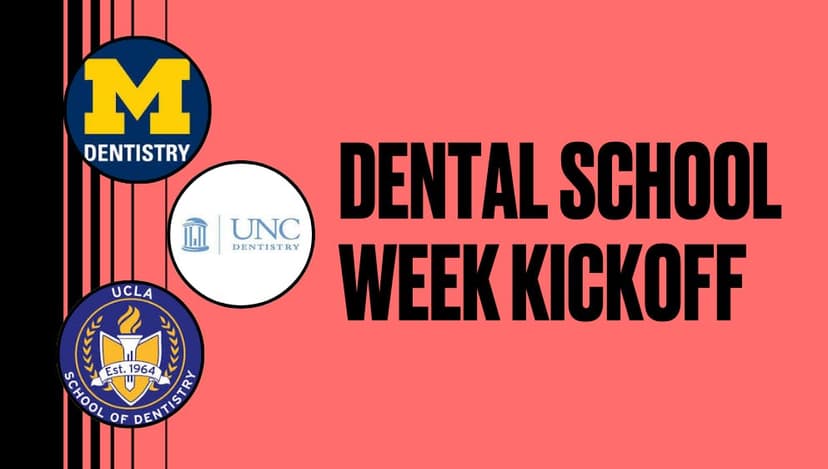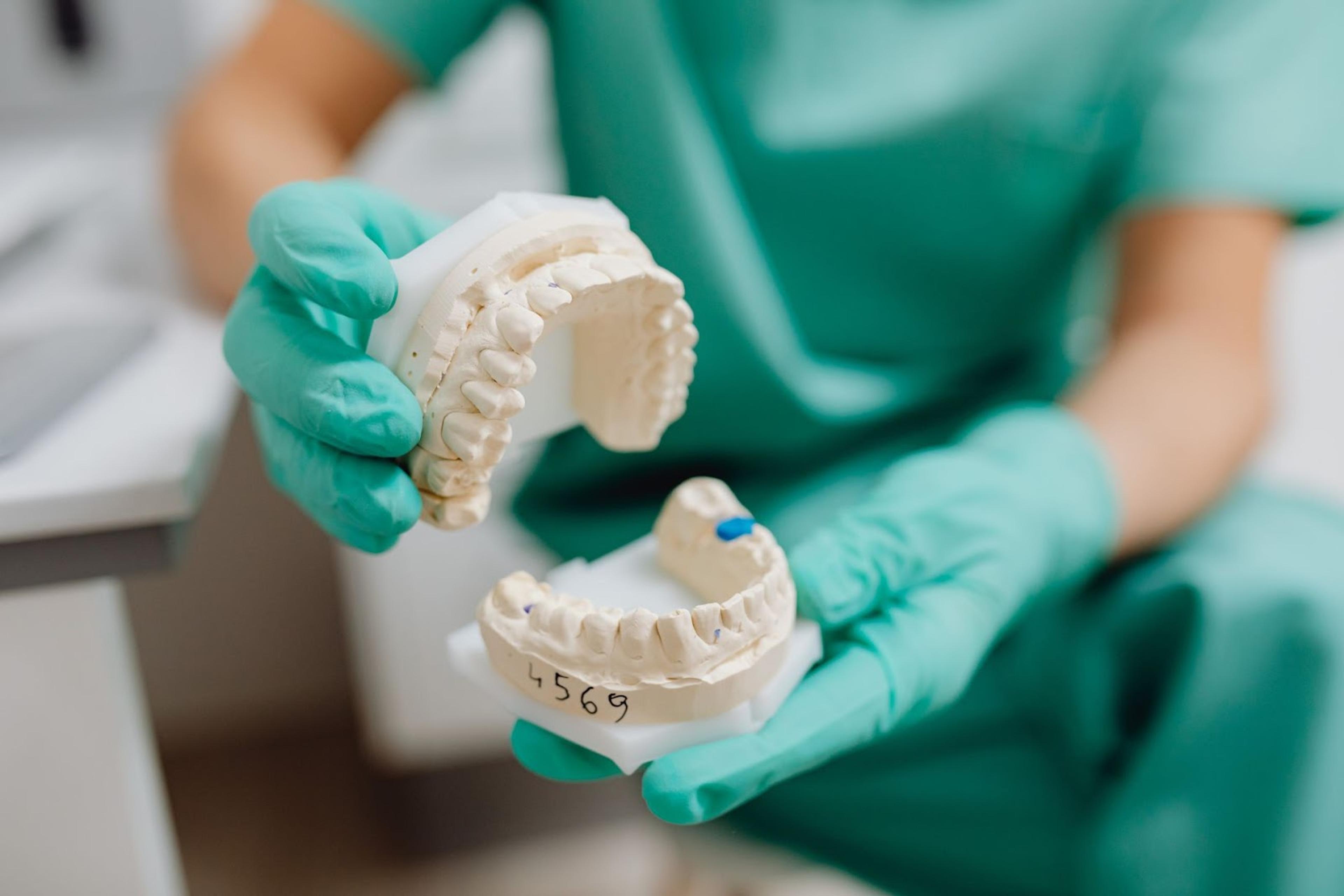Doctor of Dental Surgery (DDS) Degree – What It Is & How to Apply
Thinking about a Doctor of Dental Surgery (DDS) degree? Learn about dental school requirements, costs, licensing exams, and career options. Get insights on clinical training and financial aid to start your path to becoming a dentist.
Posted July 3, 2025

Join a free event
Learn from top coaches and industry experts in live, interactive sessions you can join for free.
Table of Contents
The Doctor of Dental Surgery (DDS) degree is one of the primary dental degrees awarded in the United States. It qualifies graduates to practice dentistry as general dentists or pursue specialized fields within dental medicine. Many universities offer DDS degrees, while others grant a Doctor of Dental Medicine (DMD) degree. Both degrees follow the same education and training requirements and are accredited by the American Dental Association (ADA).
Earning a DDS degree requires completing an extensive dental education, passing licensing exams, and gaining hands-on clinical training. This article outlines what the DDS degree entails, the application process, and potential career paths for dental graduates.
What Is a Doctor of Dental Surgery (DDS) Degree?
The Doctor of Dental Surgery (DDS) degree is a professional graduate program that prepares students to become dental care providers. It includes education in oral health, operative dentistry, oral surgery, and general patient care. The Baltimore College of Dental Surgery, founded in 1840, was the first dental school to offer a DDS degree.
Obtaining a dental degree requires a rigorous educational journey, including years of study in both undergraduate and dental school, followed by continuous learning and professional development. Both DDS and DMD degrees cover the same material. The only difference is in the title granted by the university. Whether a dentist holds a DDS or DMD degree, they are equally qualified to provide clinical dentistry services, including preventative care, diagnosis, and treatment of dental surgery cases.
Educational Path to a DDS Degree
Undergraduate Education
Before applying to dental school, students must complete a bachelor's degree, typically in biomedical sciences or a related field. Common prerequisite courses include:
- General and Organic Chemistry
- Biology
- Physics
- Anatomy and Physiology
- Microbiology
- Biochemistry
- Mathematics and Statistics
Dental School Admission Requirements
Admission to a dental surgery program is highly competitive. Applicants must:
- Complete an accredited undergraduate education
- Score well on the Dental Admissions Test (DAT)
- Submit academic transcripts and letters of recommendation
- Complete interviews at prospective dental schools
Read: How to Ace the Dental Admission Test (DAT): 5 Tips for Success
Dental School Curriculum and Training
A DDS degree requires four years of intensive dental education, blending classroom training and clinical experiences.
First Two Years
- Basic sciences and foundational courses
- Laboratory-based operative dentistry training
- Topics include anatomy, physiology, oral pathology, pharmacology, and radiology
Last Two Years
- Hands-on clinical training in dental offices and hospitals
- Exposure to pediatric dentistry, maxillofacial surgery, and general dentistry
- Direct patient care under faculty supervision
Clinical Training and Hands-On Experience
Clinical practice is a core component of a Doctor of Dental Surgery (DDS) degree, providing students with hands-on experience in patient care before they enter dental practice. These experiences are essential for developing the technical skills, decision-making ability, and professional confidence required to practice general dentistry successfully.
What Clinical Training Covers
Throughout the four years of a DDS degree, students participate in both simulated and real-world training environments. This training takes place in dental offices, hospitals, and the school of dentistry clinics under the supervision of experienced dental specialists. Students gain practical experience in:
1. Preventative and Restorative Dentistry
- Comprehensive patient exams: Identifying oral health issues early, including cavities, gum disease, and other conditions.
- Routine cleanings and fluoride treatments: Understanding how to prevent dental decay and maintain oral hygiene.
- Sealants and fillings: Learning operative dentistry techniques to restore damaged teeth.
2. Oral Health Management and Patient Counseling
- Treatment planning: Developing and explaining customized care plans for patients.
- Behavioral dentistry: Communicating with patients, reducing dental anxiety, and improving compliance with treatments.
- Pediatric dentistry training: Learning age-specific care techniques for children and adolescents.
3. Use of Modern Dental Technology and Materials
- Digital imaging and diagnostic tools: Using 3D scanning, CBCT (Cone Beam Computed Tomography), and digital X-rays.
- CAD/CAM systems: Designing and fabricating crowns and bridges using digital workflows.
- Advanced materials: Working with composite resins, ceramics, and other modern materials for restorations.
4. Oral Surgery and Complex Procedures
- Tooth extractions and minor surgical procedures: Learning techniques for removing impacted teeth and performing biopsies.
- Periodontal treatments: Managing gum disease through non-surgical and surgical interventions.
- Maxillofacial surgery exposure: Understanding advanced procedures in trauma care, jaw reconstruction, and implant placement.
Where Clinical Training Takes Place
DDS students rotate through different environments to gain exposure to varied patient populations and treatment settings:
| Training Setting | Skills Developed |
|---|---|
| University Dental Clinics | Initial hands-on experience under faculty supervision |
| Private Dental Offices | Exposure to the day-to-day operations of a dental practice |
| Hospital-Based Dental Programs | Emergency care, complex cases, and collaboration with medical professionals |
| Community Health Clinics | Experience in treating underserved populations and public health dentistry |
Why Clinical Training Matters
- Prepares students for independent practice by allowing them to apply theoretical knowledge in real scenarios.
- Builds patient management skills, from diagnosis to treatment execution.
- Develops problem-solving abilities as students encounter various dental conditions and complications.
- Ensures competency for licensing exams, including the National Board Dental Examination (NBDE) and state clinical tests.
Note: By the time dental graduates complete their DDS degree, they have spent hundreds of hours in clinical practice, making them ready to enter general dentistry, join dental specialists, or pursue private practice.
Licensure and National Board Dental Examination
Required Exams for Dental Graduates
Every dental graduate must pass standardized exams that assess both theoretical knowledge and clinical dentistry skills.
1. National Board Dental Examination (NBDE) and INBDE
The National Board Dental Examination (NBDE) was historically a two-part exam covering:
- Part I: Biomedical sciences, dental anatomy, and ethics.
- Part II: Clinical dentistry, diagnosis, and patient management.
As of 2020, the NBDE has been replaced by the Integrated National Board Dental Examination (INBDE), which combines both sections into a single test. The INBDE evaluates a dental student’s ability to apply foundational science knowledge in real-world patient care scenarios.
| Exam | Format | Focus Areas |
|---|---|---|
| NBDE Part I (Phased Out) | Written | Basic sciences, dental anatomy |
| NBDE Part II (Phased Out) | Written | Clinical applications, case-based questions |
| INBDE (Current) | Written | Integrated basic and clinical sciences, patient-based problem-solving |
The American Dental Association (ADA) oversees the INBDE, and passing it is required for licensure in all U.S. states.
2. Clinical Exam Requirements
Most states also require a clinical exam, which tests hands-on skills in general dentistry. Clinical exams may be administered by one of the following regional testing agencies:
- CDCA-WREB-CITA (Formerly separate regional exams but now merged)
- CRDTS (Central Regional Dental Testing Service)
- SRTA (Southern Regional Testing Agency)
- ADEX Exam (Accepted in multiple states)
These exams assess a graduate’s ability to perform procedures such as:
- Fillings (restorative dentistry)
- Crown preparations
- Endodontic treatments (root canals)
- Periodontal assessments
Note: Some states allow manikin-based testing instead of working on live patients. Others may offer alternative pathways, such as a postgraduate residency program in place of the clinical exam.
State Licensure Process
Each state sets its own requirements for dental licensure, but most follow a similar process. To legally practice general dentistry, a DDS degree holder must:
1. Pass the INBDE or Equivalent Exam
The INBDE is the national standard, but internationally trained dentists may need to take additional assessments before qualifying for a U.S. license.
2. Complete a Clinical Exam
Graduates must pass a hands-on clinical exam through one of the regional testing agencies. Some states allow residency training as an alternative.
3. Meet State-Specific Requirements
While the INBDE and clinical exam are common nationwide, some states have extra requirements, such as:
- Jurisprudence exams (covering state laws and regulations)
- Additional coursework (such as opioid management or infection control)
- Background checks and fingerprinting
Additional Requirements for Certain States
Some states, like New York and Delaware, do not require a traditional clinical exam. Instead, they mandate a one-year postgraduate residency in an accredited dental education program. Other states, like California, have their state-specific testing requirements.
| State | Additional Requirements |
|---|---|
| New York | One-year residency in place of clinical exam |
| Delaware | One-year residency required |
| California | State-specific clinical exam |
| Texas | Jurisprudence exam on state laws |
Career Paths After Earning a DDS Degree
A Doctor of Dental Surgery (DDS) degree opens up multiple career options in general dentistry, specialized fields, and academic roles. Graduates can practice dentistry in various settings, advance their education, or contribute to dental research and public health initiatives.
General Dentistry
Most DDS graduates begin their careers as general dentists, providing routine care and oral health services. General dentists diagnose and treat a wide range of dental issues, from cavities to gum disease. They may also perform procedures like fillings, crowns, and basic oral surgery.
Common Practice Settings for General Dentists
| Setting | Description |
|---|---|
| Private Practice | Own or operate a solo dental office, offering personalized care to patients. |
| Group Practice | Work in a multi-dentist clinic, often sharing resources and administrative support. |
| Corporate Dentistry | Work for large dental organizations with multiple locations. |
| Community Health Clinics | Provide affordable care to underserved populations. |
| Military or Government Agencies | Serve in roles with the military, VA hospitals, or public health departments. |
Note: General dentists also have the flexibility to work part-time, focus on specific patient populations (such as children or older adults), or expand into cosmetic dentistry by offering elective procedures like teeth whitening and veneers.
Specializations for DDS Graduates
Some DDS degree holders choose to specialize in advanced fields that require additional dental education beyond dental school. Specialization typically involves completing a residency program and obtaining board certification.
Common Dental Specialties
| Specialization | Description | Additional Training |
|---|---|---|
| Endodontics | Focuses on diagnosing and treating diseases of the dental pulp, including root canals. | 2-3 years |
| Periodontics | Specializes in gum disease treatment and dental implants, including bone grafting and periodontal surgery. | 2-3 years |
| Prosthodontics | Works with dental prosthetics like crowns, bridges, dentures, and implants. | 3 years |
| Orthodontics | Corrects teeth and jaw alignment using braces, retainers, and clear aligners. | 2-3 years |
| Oral and Maxillofacial Surgery | Treats complex surgical cases, including wisdom tooth extraction, facial trauma, and jaw reconstruction. | 4-6 years |
| Pediatric Dentistry | Specializes in children’s dental care, focusing on growth, development, and preventive treatments. | 2 years |
Note: Each specialty has its own certification process through the American Dental Association (ADA) and requires passing additional exams.
Academic and Research Opportunities
For those interested in teaching or research, a DDS degree can lead to roles in higher education or public health organizations.
1. University Faculty and Teaching Roles
Many universities hire experienced dentists to teach dental students. Faculty positions may involve:
- Teaching clinical dentistry and dental techniques.
- Mentoring students in patient care and research.
- Conducting studies in areas like biomedical sciences and new dental technologies.
2. Research Careers in Dentistry
Dentists can also work in research institutions, government agencies, or private industry to improve dental care. Research opportunities exist in:
- New dental materials and technology (such as digital impressions and 3D printing).
- Oral disease prevention and treatment.
- Public health initiatives to improve dental care access.
3. Government and Public Health Roles
Some DDS graduates work with:
- The Centers for Disease Control and Prevention (CDC) on oral health programs.
- The National Institutes of Health (NIH) in research and policy-making.
- State health departments focusing on public dental care initiatives.
Read: The Different Types of Medical Careers – and Which One is Right for You
Cost of a DDS Degree and Financial Considerations
Tuition and Total Cost of a DDS Degree
The cost of dental education depends on whether a student attends a public or private university.
| Factor | Public University | Private University |
|---|---|---|
| Tuition (per year) | $30,000 - $60,000 | $60,000 - $100,000 |
| Total Cost (4 years) | $120,000 - $240,000 | $240,000 - $400,000 |
| Financial Aid Available? | Yes | Yes |
Additional Expenses
In addition to tuition, students must cover other expenses, such as:
- Dental Instruments and Supplies: $5,000 - $10,000 per year
- Textbooks and Study Materials: $1,500 - $3,000 per year
- Licensing and Examination Fees:
- Dental Admissions Test (DAT): $525
- National Board Dental Examination (NBDE): $490 - $680
- Clinical Exam Fees: $2,000 - $3,000
- Living Expenses: $15,000 - $30,000 per year, depending on location
Financial Aid and Funding Options
1. Scholarships and Grants
Many universities and private organizations offer scholarships to help offset tuition costs. Some well-known options include:
- American Dental Association (ADA) Foundation Scholarships
- National Health Service Corps (NHSC) Scholarship Program (for those who commit to working in underserved areas)
- State-Based and School-Specific Scholarships
2. Federal and Private Student Loans
Most dental students rely on loans to finance their education. Common options include:
- Federal Direct Unsubsidized Loans – Lower interest rates and flexible repayment options
- Federal Grad PLUS Loans – Covers remaining education costs after other financial aid
- Private Student Loans – Available through banks and credit unions, often with higher interest rates
3. Loan Repayment and Forgiveness Programs
After graduation, DDS degree holders can explore loan repayment programs to reduce debt:
- Public Service Loan Forgiveness (PSLF): Available to dentists working in government or nonprofit organizations.
- State Loan Repayment Programs (SLRP): Some states offer loan forgiveness for dentists practicing in underserved communities.
- Military Health Professions Scholarship Program (HPSP): Covers tuition for students who commit to serving as military dentists.
Earning Potential and Return on Investment
While dental school is expensive, DDS graduates can expect high earning potential.
| Career Path | Average Annual Salary |
|---|---|
| General Dentist | $183,000 |
| Orthodontist | $287,000 |
| Oral and Maxillofacial Surgeon | $310,000 |
| Prosthodontist | $220,000 |
Note: Even after considering student loan repayment, a career in dentistry provides a strong return on investment, making it a financially viable long-term choice.
Steps to Apply for a DDS Program
Preparing for Dental School Applications
- Maintain strong academic performance in biomedical sciences
- Score well on the Dental Admissions Test (DAT)
Researching Dental Schools
- Check ADA-accredited dental schools
- Consider tuition costs, clinical experiences, and location
Submitting Applications
- Apply through the ADEA AADSAS system
- Write a compelling personal statement
- Obtain letters of recommendation
Final Thoughts
A Doctor of Dental Surgery (DDS) degree is the foundation for a career in dentistry, providing the necessary education, clinical training, and licensure to practice general or specialized dentistry. With rigorous coursework in biomedical sciences, operative dentistry, and patient care, along with hands-on experience in dental offices and hospitals, DDS graduates are well-prepared for real-world practice. The degree is equivalent to a Doctor of Dental Medicine (DMD), differing only in name. While dental school can be costly, with tuition ranging from $120,000 to $400,000, financial aid options like scholarships, grants, and loans help manage expenses. Graduates earn strong salaries, averaging $183,000 per year, with specialists making more. Career paths include private practice, group practice, hospitals, academia, and research, all contributing to the essential field of oral health care.
Need Help with Your Dental School Application?
A Dental School Admissions Coach can guide you through applications, personal statements, DAT prep, and interviews. Get expert help to improve your chances of acceptance.
Read these next:
- What Do You Learn in Dental School?
- DMD vs. DDS: What's the Difference and Which is Better?
- Dental School Interview Guide
- How to Write a Powerful Dental School Letter of Intent
- Dental School Vs. Medical School: Which One is Right For You
- How to Become a Dentist: Application, Degree Programs, FAQs
- How Many Shadowing Hours for Dental School? The Ultimate Guide
FAQs
What does DDS stand for?
- DDS stands for Doctor of Dental Surgery. It is a professional degree awarded to dental graduates upon completion of their education and training. The DDS degree signifies that an individual is qualified to practice dentistry.
Which is better, DDS or DMD?
- There is no difference between a DDS (Doctor of Dental Surgery) and a DMD (Doctor of Medicine in Dentistry or Doctor of Dental Medicine). Both degrees represent the same level of education and training, and dentists with either degree are equally qualified to practice general dentistry. The distinction in naming is historical and based on the university's preference. For example, when Harvard University established its dental school in 1867, it chose to award the DMD degree to align with its tradition of using Latin degree names.
Is a DDS the same as a doctorate degree?
- Yes, a DDS is a doctorate degree. It is a professional doctoral degree specifically for dentistry, similar to how an MD (Doctor of Medicine) is for medicine. Earning a DDS involves completing undergraduate education followed by dental school, which includes both classroom instruction and clinical training. Graduates are qualified to diagnose and treat oral health conditions.
Is DDS equivalent to MD?
- While both DDS and MD are doctoral degrees, they are in different fields. A DDS pertains to dentistry, focusing on oral health, while an MD pertains to medicine, focusing on general human health. The education and training for each are distinct, with dental programs concentrating on oral and dental care and medical programs covering a broad range of medical knowledge and patient care. Therefore, a DDS is not equivalent to an MD, but both are respected professional degrees in their respective fields.
Browse hundreds of expert coaches
Leland coaches have helped thousands of people achieve their goals. A dedicated mentor can make all the difference.

















